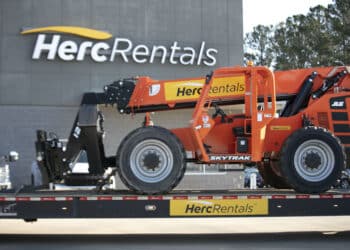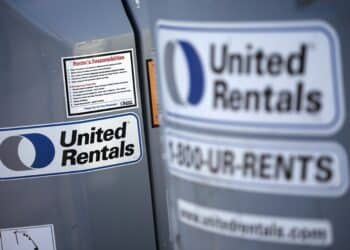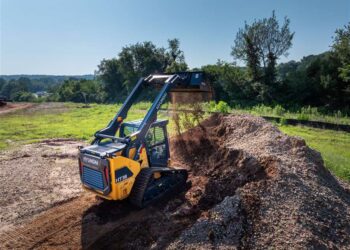Rental houses liquidating through auctions, small-ticket lenders
Equipment finance originations projected to drop 10% in 2025
Equipment rental houses are turning to auctions and expanding sales operations to liquidate, creating financing opportunities primarily for smaller ticket items.
Rental penetration for U.S. construction and industrial equipment hit a record 57% in the first quarter, according to equipment market research firm EquipmentWatch.
As rental demand grows, equipment rental companies must consistently refresh their fleets to remain competitive. Rental-to-sale conversion is one effective way to purge aging equipment, Drew Dobson, general manager at Kersey, Pa.-based GM Equipment Rentals, told Equipment Finance News.
It’s crucial to thoroughly assess the condition and remaining life of a machine, he noted.
“If I sell a used piece of equipment, is the customer going to be happy with it a year or two from now and not come back and blame an issue or a problem on me?” he said. “So, we really weigh that out before we sell a piece of equipment to a customer.”
Used-equipment sales largely depend on the size of the rental company, Josh Nickell, chief executive of Atlanta-based Northside Tool Rental, told EFN. The oldest equipment in most rental fleets is typically about 7 years old, he added.
“The bigger you are, the more you can invest in focused equipment sales,” he said. “When you think about the national rental companies, they can have people who are in charge of used equipment. They can have people who are analyzing it, making those decisions, and they spend a lot of time and focus.”
Smaller rental companies, meanwhile, are more inclined to rely on online marketplaces or other third parties to sell, often targeting opportunities outside of their primary customer base to ensure that their regulars continue renting, Nickell said.
Stabilizing auction values
Many rental houses also liquidate via auction, especially since auction values have stabilized, GM Equipment’s Dobson said, noting that they’re “definitely not as volatile as they were a year or two ago.”
“I really enjoy taking it to auction because we don’t see much less of a return than we would by selling it outright. Also, the stress factor is at zero.”
— Drew Dobson, general manager, GM Equipment Rentals
“We call up Richie Bros. or Iron Planet or whoever. … They send an inspector out, he looks over the machine, does a report on it, puts it up on the web for advertisement for a month or so and then it hits the auction block, and it’s gone,” he said.
Northside Tool Rental’s Nickell agreed, saying that auctions are especially beneficial for smaller rental companies that don’t have dedicated used equipment sales representatives.
Small-ticket financing
While the equipment finance industry has mostly withstood tariffs and other macroeconomic challenges this year, new business volume is expected to dip roughly 10% in 2025 to a little over $110 billion, according to an Aug. 25 report by the Equipment Leasing and Finance Association.
Thus, more equipment lenders are exploring the rental market, which is projected to grow 5.2% to a record $87.5 billion in 2025, according to the American Rental Association.
Rental-to-sale conversions present ample opportunities for lenders specializing in small-ticket deals ranging from about $10,000 to $25,000, Nickell said. Small-ticket lenders looking to partner with rental houses should focus on technology to streamline the process, though, he said.
“When selling my used piece of equipment to an end user, the solution is going to be fintech because it’s too many small deals and it’s not valuable enough to me,” he said. “I certainly wouldn’t be opposed to having a finance partner that could help me sell stuff, but it needs to be simple, easy and not a hassle.”
Lenders prioritizing larger-ticket deals may want to consider partnering with auctioneers or resellers that acquire equipment in bulk from rental companies, he said.
Check out our exclusive industry data here.










